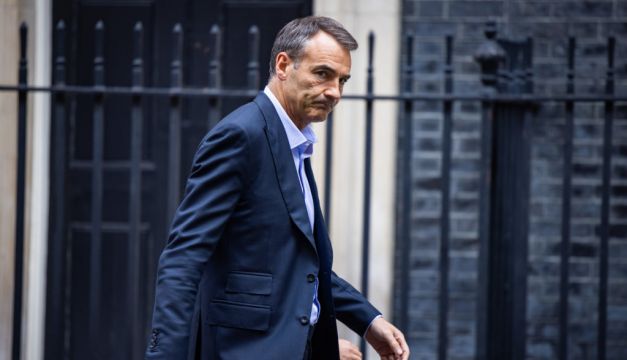Irishman Bernard Looney, who has resigned as BP boss over past relationships with colleagues, first joined the company where he has spent his entire working life as an engineer.
He joined the oil giant as a drilling engineer in 1991, after getting an honorary doctorate and a bachelor’s degree in electrical engineering from University College Dublin, and a master’s in management from Stanford Graduate School of Business, his company profile says.
During his years with the business, he worked in the North Sea, Vietnam and the Gulf of Mexico, and was also an engineer on the Alaskan Thunder Horse field.
He had also worked directly for former bosses Tony Hayward and his predecessor, Lord Browne, before taking on responsibility for overhauling drilling at BP following Deepwater Horizon.
Mr Looney was previously head of oil and gas production before he took over as chief executive from Bob Dudley at the beginning of 2020.
It was announced at the time that Mr Looney would take home a basic salary of £1.3 million (€1.5 million) a year, before any bonuses.

BP chairman Helge Lund said: “As the company charts its course through the energy transition, this is a logical time for a change. Bernard has all the right qualities to lead us through this transformational era.
“He is an authentic, progressive leader, with a passion for purpose and people and a clear sense of what BP must do to thrive through the energy transition.”
Mr Looney had pledged BP would aim to get to net zero by 2050 – the same target that was adopted by the UK government.
His announcement that the business would increase the amount it invests in low-carbon projects tenfold by 2030 to around $5 billion a year gained praise from environmental group Greenpeace.
He also helped to navigate the firm through unpredictable periods such as the coronavirus pandemic and Russia’s conflict with Ukraine, both of which impacted oil and gas prices.
Earlier this year, it was revealed that Mr Looney had earned more than 170 times more than his average employee in 2022 as his pay doubled to around £10 million after the company benefited from the Russian full-scale invasion of Ukraine.
Figures from the oil giant showed that Mr Looney’s total pay packet increased from around £4.5 million in 2021.
The company’s profit doubled between 2021 and 2022, but the increase was largely thanks to a long-term incentive that was paid to Mr Looney.
This meant that his remuneration was around 172 times higher than the average employee at the oil and gas giant.
And just months after taking the job, Mr Looney told staff BP planned to cut 10,000 jobs from its global workforce, after the business took a major hit from the coronavirus pandemic.
It came weeks after the company increased the dividend it pays to shareholders in 2020.
But this week his glittering career at the company, where he spent his entire working life, came to a sudden and dramatic end over the allegations about his relationships, and the fact he was not fully transparent.
He has now stepped down, and BP’s chief financial officer Murray Auchincloss will take over the role on an interim basis.
It emerged that BP’s board received and reviewed allegations from an anonymous source relating to Mr Looney’s conduct in respect of personal relationships with colleagues in May 2022.

During that review, Mr Looney disclosed a “small number of historical relationships” with colleagues prior to becoming chief executive, and no breach of the company’s code of conduct was found, BP said.
But the board “sought and was given assurances” by Mr Looney about disclosure of past personal relationships, as well as his future behaviour.
Further allegations of a similar nature were received recently, and the company immediately began investigating with the support of external legal counsel. That process is ongoing.
Mr Looney on Tuesday informed the company that he accepts he was “not fully transparent in his previous disclosures”, BP said.
He did not provide details of all relationships and accepts he was obligated to make more complete disclosure.

BP said in a statement: “The company has strong values and the board expects everyone at the company to behave in accordance with those values.
“All leaders in particular are expected to act as role models and to exercise good judgement in a way that earns the trust of others.”







